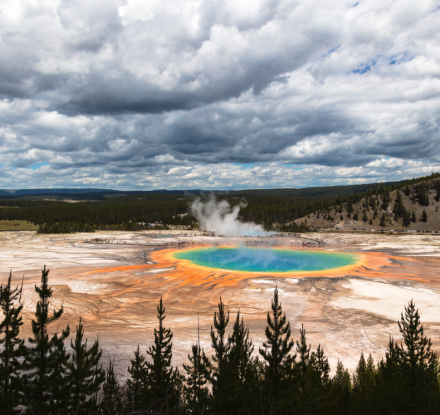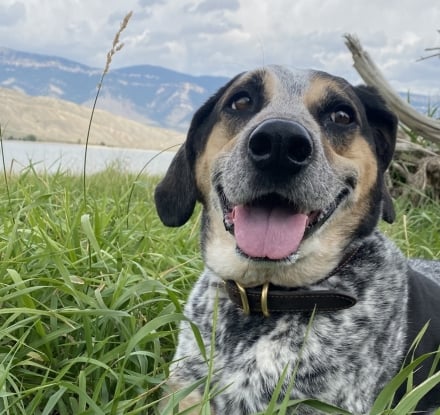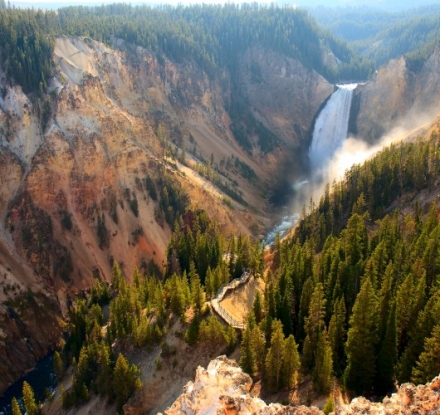
The Do Good Sinners of Cody
Every frontier town had its ramblers, gamblers, “sportin’” women and robbers, and Cody was no
exception. While many of these less-than-upstanding souls were downright dangerous – just ask the
families of the doctor who was mysteriously murdered right on his doorstep or the First National Bank
cashier who was shot by robbers in 1904 – some had a soft side that emerged at the oddest times.
Picture a group of frontiersmen, including Buffalo Bill Cody, sitting around playing cards, boisterous,
trash-talking, drinking. The year was 1902. It was a big year in Cody. The town had been incorporated
one year earlier, with a population of 300 citizens, and growing. The Chicago, Burlington and Quincy
Railroad had completed the spur from Toluca to Cody. Buffalo Bill Cody opened the Irma Hotel that year.
Named for his daughter, the Irma was promoted as the most modern hotel in the Rockies. And Buffalo
Bill’s dream of damming the Shoshone River to supply water to his town and the surrounding ranchland
was coming to fruition.
The country was experiencing the push of modernization, and citizens of all stripes were learning to
adapt. Butch Cassidy, Harry Longabaugh and Etta Place had taken their well-honed bank-robbing skills
on the road to South America by then. Stagecoaches were still being robbed, but motorcars were
beginning to arrive on the scene. There were plenty of saloons in Cody, but schools and churches were
being built right alongside them.
Back to our game. Buffalo Bill and George Beck, another town founder, along with several ranchers and
other town men were well into their regular poker game at Purcell’s Saloon, and the pot was growing.
Buffalo Bill and Beck, presumably well-lubricated with local spirits, suggested to the group that whoever
won the pot should donate the money to something that would benefit the town rather than simply
pocket the cash. Beck won and decreed that the money would be used to build an Episcopal Church.
Beck’s wife and her friends funded the rest of the church through bake sales and church dinners, and
church opened shortly after that.
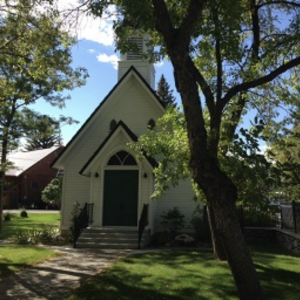
The Poker Church was built when town founders Buffalo Bill Cody and George Beck donated the
winnings of a large pot of cash.
Another sinner with a big heart was Cassie Waters. Finding herself a widow and single mother at a
young age, Cassie opened a house for sportin’ ladies on Salsbury St. in downtown Cody. Cassie’s thrived,
and so did its namesake. Whenever a school needed built or a member of the community was in dire
need, Cassie was quick to lend a hand or contribute cash to the cause. She wasn’t always treated fairly
by the community. In the early 1930s, the proprietress was asked to close her establishment because it
offended the more proper members of the population. Instead of closing down, she moved Cassie’s
Supper Club to the outskirts of town. The supper club is still in operation today, offering live music,
dancing and music.
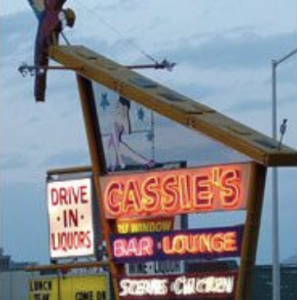
Cassie Waters was another do-good sinner. She was quick to help anyone in need, and she contributed
cash to the construction of schools and churches. Cassie’s Supper Club is still in operation today.
Even crooks were occasionally compassionate. Butch Cassidy, for example, promised his bank-robbing
pals that they could safely stash the contents of their wallets at the Bank of Meeteetse, pledging that he
would never rob it.
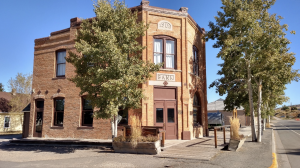
Even the town’s most notorious criminals displayed an occasional soft side. Butch Cassidy, for example, promised his pals that they could safely stash their cash at the Bank of Meeteetse, pledging that he would never rob it.
You can’t make this stuff up. I was reminded of these legendary characters on a recent trip aboard Cody
Trolley Tours, where enthusiastic historians drive by these legendary places and recount true tall tales of
Cody.
Until next time, I’m loving life and legends here in Cody Yellowstone.


